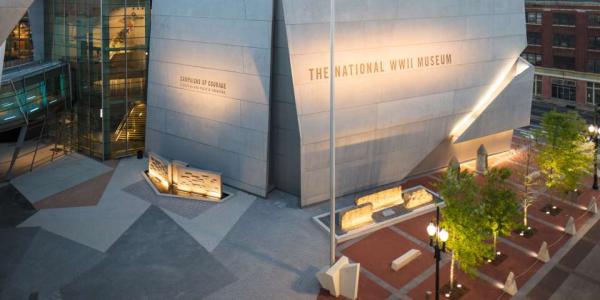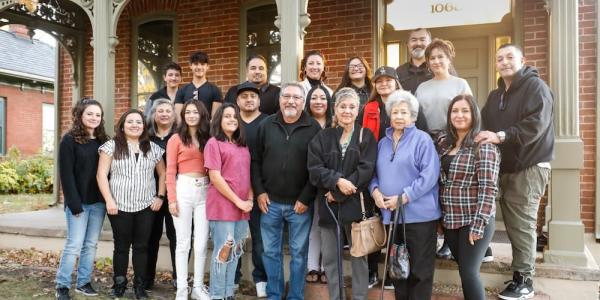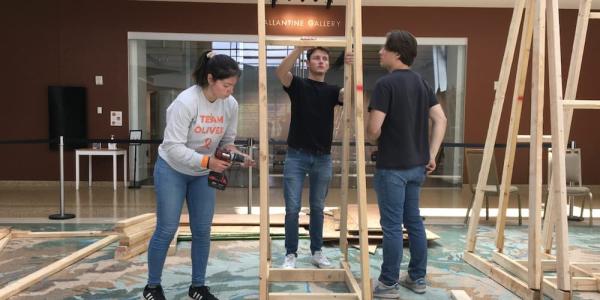History Speaks, the Future Listens.
Interested? Request more information
BA in History and BA in History with a secondary licensure offered
Credit hours: 36
Full-time, part-time
on-campus, hybrid, study abroad, and online courses.
Start terms: fall, spring, summer
Minor available fully online
Open the door to endless possibilities with a degree in history from the University of Colorado Denver. Our program goes beyond the traditional classroom experience to equip you with skills that open doors in fields as diverse as finance, law, museums, public service, education, media, and more. At CU Denver, history is more than exploring the past—it’s a powerful pathway to real-world experiences and a meaningful career.
Immerse yourself in history by delving into dramatic moments and studying influential figures from every corner of the globe. Whether it’s revolutions in Europe, the ancient traditions of Africa, the vibrant cultures of Asia, or the dynamic stories of Latin America, the Middle East, and the United States, our program empowers you to trace the threads of where history’s past meets today’s challenges—and how to shape the future ahead.
Discover how history connects you to the past, the present—and your future. As a history major at CU Denver, you’ll gain more than just knowledge of events; you’ll learn to understand the forces of change that shape societies across time. History isn’t just a study of what happened—it’s an exploration of why and how change occurs.
Alumni Highlight
"The faculty in the History Department were brilliant, passionate, and always patient and friendly. Our professors strongly encouraged critical thinking and challenged the way we saw the world in a historical sense. My time as a history student at CU Denver has had a profound effect on me as a citizen and my development as a lawyer."
—Crist Witney, Civil Rights Attorney, Grad 2017
Why Major in History at CU Denver?
- Develop research, analytical, and writing skills that set you apart in the workplace and beyond.
- Build confidence to make informed decisions across countless fields, from business and law to public service and education.
- Learn to recognize patterns and trends that shape societies—a vital tool for understanding and navigating today’s world.
Our discussion-driven classes foster collaboration, critical thinking, and the opportunity to develop your own ideas and perspectives. You’ll graduate with a skill set that stands out, including the ability to research deeply, write compellingly, and analyze insightfully—qualities that employers value across all industries.
Flexibility is at the heart of our program. With options to complete your degree fully on-campus, entirely online, studying abroad, or in a hybrid format, you’ll be able to tailor your education to fit your lifestyle and goals.
With us, history isn’t just about books and lectures. You’ll dive into history through music, films, local archives, podcasts, and more. Learning here is dynamic, interactive, and fun. At CU Denver, history isn’t just a major—it’s an experience.
Choose from two distinct Bachelor of Arts:
- The Bachelor of Arts in History—36 Credit Hours
- BA in History with Secondary Licensure, which will allow you to teach grades 7-12 in Colorado—36 History Credit hours
We also offer
- History Minor: 18 Credit Hours
- Online History Minor: 18 Credit Hours
Learn more about a career in history
Learn about careers in history at data.io
Screenshot taken: January 2025
Kickstart your future career with a history degree from CU Denver, where you’ll graduate with highly marketable skills—like research, writing, analysis, and critical thinking—that are always in demand. Our program is designed to turn your passion for history into a rewarding profession, backed by our department’s personalized support and endless opportunities to succeed.
Careers
- Teachers
- Higher Education
- Government
- Private Sector
- Librarian
- Communications
- Law
- Museum Professionals
- Health Fields
- Business
- Archaeologist
- Historic Preservation
- Broadcast Journalism
- Archivists
- Non-Profit
Companies some of our graduates have worked for
- National Park Service
- History Colorado
- Regis University
- Gary Sinise Foundation
- National World War II Museum
- Historic Denver
- National Renewable Energy Laboratory
- Colorado State University
- New York State Parks, Recreation & Historic Preservation
- Various school districts as teachers, staff, or administrators
- Autism Society of America
- Denver Health
- Denver Public Library
- Law Offices across Colorado and beyond
Curriculum
Internships
You can add experience to your degree through a CU Denver internship. Examples include:
- National History Day in Colorado
- Koch Fellowship at History Colorado
- Denver Public Library Archives and Special Collections
History courses at CU Denver draw from diverse fields like social sciences, humanities, and even natural sciences, offering a truly interdisciplinary approach. By comparing human conditions over decades or centuries, you’ll uncover fundamental social trends and analyze the key factors redefining norms. These insights go beyond academics—they prepare you to think critically, write persuasively, and analyze deeply.
Flexible and Personalized Learning
With 36 total credit hours required, our program at CU Denver is as flexible as it is engaging. Beyond two core classes, the rest of your coursework is entirely up to you. Explore your interests by studying different time periods, cultures, and regions—from ancient civilizations to modern global conflicts or alliances.
Majoring in History: 36 hours
Course topics you may be interested in include:
- US History to or since 1876
- The World at War, 1914-1946
- Rome: City and Empire
- Denver History or Colorado History
- The American West
- History in Museums
- National Parks History
- Public History Administration
- Modern or Traditional Chinese History
- History of Science
- World History Before or Since 1500
- Renaissance or Medieval History
- Globalization
- Weapons of Mass Destruction
- Native American History
- African History
- Imperialism
Secondary Licensure
You can add a secondary licensure to your History degree through the School of Education department by completing the Education Declaration form (including a background check) and completing the requirements. Requirements include a GPA of 3.0 or higher, your core, CLAS, major, elective and initial teacher education courses. Once you have those completed you will apply and interview for your Professional Year. Please see the School of Education and Human Development for more information.
CU Denver Core: 34-40 Hours
You’ll be educated in
- English and mathematics
- international and cultural diversity perspectives
- arts and humanities
- behavioral, physical, and social sciences
College of Liberal Arts and Science Graduation Requirements—15 Hours
These courses give you a better understanding of the issues and skills you need to succeed.
Topics include:
- Logic, Language, and Scientific Reasoning
- Psychology
- Writing for the Sciences
- Public Health
Extend your degree with a double major, minor, or certificate
Minor in History
When you add a History Minor, you gain historical context for whatever your professional interest may be. You can add a history minor fully online or you can take classes on campus. Both the History Minor and the Online History Minor require 18 credit hours.
Our flexible minor allows you to take six credit hours of elective history courses and three credit hours in each of the following areas:
- United States History
- European History
- World History (Asia, Africa and Latin America)
To declare a minor, see your CLAS Advisor.
Double Majors
You, like many of our students, may be interested in a double major. Common combinations include:
- International Studies
- Psychology
- Political Science
- Sociology
- Communication
- Anthropology
- Ethnic Studies
- Spanish
- Women’s and Gender Studies
Certificates to consider
Digital Studies Certificate–12 Credits
The Digital Studies Certificate helps you explore the relationship between technology and society while building in-demand skills like web design, media production, and data analysis, among others. Showcase your talents to employers and graduate schools and give your resume and transcript a boost.
Learn about the Digital Studies Certificate
Latin American Studies Certificate—12 Credits
The Latin American Studies Certificate offers you a multidisciplinary exploration of the region’s histories, cultures, and politics through courses in History, Spanish, Anthropology, and more. You’ll study topics like Indigenous cultures, García Márquez’s literature, liberation movements, and US-Latin American relations. With just 12 flexible credits (including bilingual options and double-dipping with majors), it’s easy to complete and enhances any field of study. Whether expanding your Spanish skills, deepening global perspectives, or preparing for careers in international affairs, business, or education, this certificate provides cultural context to make an impact.
¡El certificado también es bilingüe! Los cursos de literatura latinoamericana se dan en español, y los cursos de historia te permitirán investigar y escribir en español.
Learn about the Latin American Studies certificate
Immigration Studies Certificate—12 Credits
The Immigration Studies Certificate gives you the knowledge and hands-on experience to tackle one of today’s most pressing issues. Through coursework, research, and an internship, you’ll explore immigration law, refugee policies, and the social, economic, and political impacts of migration. You’ll gain the skills to conduct research, influence public policy, and shape government decisions, while working directly with immigrant and refugee communities. Whether you’re interested in refugee services, community organizing, policy-making, or graduate study in fields like Social Work, Public Policy, or Education, this certificate equips you to advocate for change and support immigrant communities in meaningful ways.
Mission
The mission of the CU Denver History Department is to create an inclusive community dedicated to upholding the importance of historical studies in the academy and public sphere and in relation to a broad range of human activities and decision making. We work to develop equitable and just approaches to social problems through historical inquiry. The History Department encourages engagement with the past by supporting students in their studies, faculty in their research and teaching, and the public in its curiosity. The subjects we teach inform effective policy, and the skills we foster—judicious reading, clear writing, and persuasive speaking—remain perpetually in demand. The study of history offers practice in research and the interpretation of data, argument, and rhetoric. But most important, history reminds us of other times and places. Making sense of the world is impossible without memory and perspective.
Learning Outcomes
1. Knowledge of human cultures
History students will:
- Identify people, events, and processes significant to their courses of study
- examine similarities and differences across chronologies, geographies, and themes
- explain how past peoples understood their worlds and how those understandings shaped the ways they acted
- analyze the range of social, cultural, political, and economic possibilities available to people in particular contexts
- analyze why change occurs
2. Intellectual and Practical Skills
2.1 Inquiry and Analysis
History students will
- develop a creative, focused, and manageable question for historical research
- synthesize evidence representing a variety of perspectives
- explain the challenges of constructing historical narratives using incomplete and contradictory evidence
- formulate a thesis and conclusion substantiated by primary and secondary source analysis
- critique alternative conclusions
2.2 Critical Thinking
History students will
- identify and analyze the central issues, arguments, and points of view in primary and secondary sources
- evaluate authors’ arguments and assess their evidence and conclusions
- critique their own and others’ assumptions and the contexts in which they develop those assumptions
- use the concept of historiography, in order to compare and contrast a variety of scholarly texts
- analyze the ways the histories historians write are products of particular historical contexts
2.3 Written Communication
History students will
- establish the context, audience, and purpose of their written assignments
- master the conventions of historical writing, including: clear paper organization (thesis, evidence, conclusion); logical paragraph organization; clear, direct, and engaging language; proper citation methods, using Chicago style
- compose papers employing narrative, descriptive, and analytical writing to convey their historical knowledge and analytical skills
2.4 Information literacy
History students will
- determine the types of sources that are relevant to a research question
- locate and evaluate appropriate materials for historical research, using book catalogs (Skyline, Prospector, WorldCat), article databases (particularly America: History and Life, Historical Abstracts, and JSTOR), and interlibrary loan
- demonstrate understanding of the ethical and legal issues surrounding the use of published and unpublished materials, including what constitutes plagiarism and how to cite sources
3 - Personal and social responsibility
3.1 Intercultural knowledge and competence
History students will
- evaluate how their cultural biases inform their understandings of history
- evaluate the ways that historians of different cultural perspectives produce different histories
- interpret historical evidence with consideration to historical actors’ various cultural perspectives
3.2 Ethical reasoning and action
History students will
- analyze the ethical issues embedded in historical events and processes
- evaluate different ethical choices present in historical decision-making
- evaluate the ethical assumptions of the texts they read
4 - Integrative and applied learning
History students will
- demonstrate connections between different courses and readings
- synthesize academic experiences with their experiences outside the classroom
- seek out applications of their historical knowledge and skills beyond the classroom
Tuition
The cost of tuition for the Bachelor of Arts in History is different for in-state and out-of-state students. See the link for the current table of rates.
Residents of Western Interstate Commission for Higher Education (WICHE) states may qualify for reduced tuition rates. The Western Undergraduate Exchange (WUE) program requires students to maintain current residency in WICHE state until degree completion.
Scholarships
Each year, CU Denver undergraduate students are awarded over $30 million in scholarships from institutional, local, state, and national sources. Learn more, and apply here.
History department specific scholarships
The Ward Family Prize
Judy and Tom Ward present this prize of up to $2000 in public history each spring to the CU-Denver history student or graduate who has done the most to promote history among the public through educational activities, historic preservation, museum work, publications, tours, talks and other efforts to foster a sense of place and appreciation of the past as a guide to the future. All CU-Denver history students – undergraduate, graduate, and graduated -- are invited to apply.
The Mark Foster Scholarship: $1000
Undergraduate History majors are eligible. This scholarship was established by Professor Emeritus Mark S. Foster, who wished to encourage students at CU Denver to pursue the study of History.
Each year, the department awards the Foster Scholarship to one undergraduate History major who demonstrates outstanding academic achievement as well as financial need.
Requirements: A short essay, a transcript, and a resume.
Learn more about the Mark Foster Scholarship
The Koch Fellowship: $6,200 stipend
Don Koch, a Colorado historian and author, established the Donald Warner Koch Colorado History Fund to endow two fellowships for CU Denver graduate students and highly qualified undergraduates enrolled in history.
Fellows gain experience in archive and collections management, education, historic preservation, librarianship, museum studies, public history and publications.
Koch Fellowships provide two CU Denver History student fellows $6,200 each to spend an average of 8 hours a week for the next academic year at the History Colorado Center.
Requirements: A short application letter, a transcript, a resume, and a writing sample. If selected as a semi-finalist, you will also be asked to complete an interview.
Learn more about The Koch Fellowship
Other opportunities
The History department and other departments have paid positions (both in the work-study program and outside of it) which may include jobs as graders, teaching assistants, and learning assistants. Please expect to have to apply. Learn more here.
Admission Requirements
If you are an incoming freshman to CU Denver (in-state, out-of-state, and international applicants), you can apply through either the Common Application or the Milo Application. Transfer students will need to submit the Milo Application.
Incoming first-year students
CU Denver requires that students complete the Colorado Higher Education Admission Requirements (HEAR). You will not have to meet all Minimum Academic Preparation Standards (MAPS) for admission, but you will need to complete CU Denver coursework by graduation.
Transfer Students
We have strong connections with other four-year and community colleges. If you have completed more than 24 credits of transferable coursework, you will be evaluated for admission on the basis of your college GPA without regard to your high school performance. If you have fewer than 24 credits, you will be evaluated based on both your high school and college GPAs. For more information and to plan your transfer, see transfer admissions in the admissions office.
If you are in your first or second semester at one of the participating Colorado community colleges and plan to transfer to CU Denver after earning your associate degree, CU Denver Bridge to Bachelors might be a great program for you. To qualify, you must meet the criteria including meeting regularly with your assigned CU transfer advisor while you are attending community college.
International Students
You will need to begin your application through the Office of International Affairs. They will help you manage your application process.
Application deadlines
Spring
Domestic Application: January 1
International Applications: Priority is September 15, and Final is October 15
Summer
Domestic Applications: May 15
International Applications: Priority is January 15, and Final is March 15
Fall
Domestic Applications: August 1
International Applications: Priority is March 15, and Final is May 15
History Department in the News
In The News
- CLAS Mixtape Showcases the Breadth of CU Denver Research
- CU Denver and National History Day Expand Access to Civic Education Across Colorado
- Denver Scholarship Foundation Celebrates Scholars - Including Multiple CU Denver CLAS Students and Grads
- Mapping Hidden Histories: CU Denver’s Cameron Blevins Wins National Recognition for Groundbreaking LGBTQ+ Research
- History Professor Wins Colorado Book Award
- Cameron Blevins featured in USA Today on 250th Anniversary of the USPS
- Gabriel Finkelstein Interviewed About His Research on Emil du Bois-Reymond
- Showcasing CU Denver Student Research: The 2025 Issue of Historical Studies Journal Is Now Live
- Spring Grads Showcase How CU Denver Makes Education Work for All
- Molly Rose Merkert, a CU Denver Graduate Student in Historical Preservation, Speaks Out Against Proposed Changes to Civic Center Park’s Greek Theater
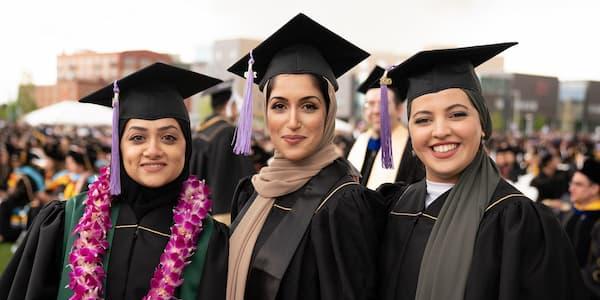
Making Education Work for All
At CU Denver, making education work for all means breaking down barriers so every learner can succeed. Through inclusive policies, programs, and partnerships, we’re building a culture where opportunity isn’t defined by identity but by ambition and impact. Learn more at our Office of Access and Campus Engagement (ACE)
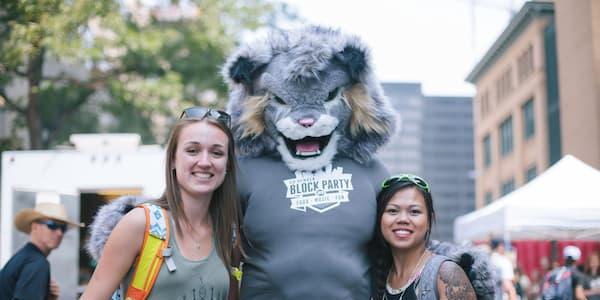
Find your people
Campus can feel like a huge place. We help you find your people by offering the experience of a more traditional, small liberal arts program—for a fraction of the cost. We offer a variety of clubs and networking opportunities.
- Phi Alpha Theta – Honors program
- Historical Studies Journal – Editorial Board
- RACAS – The Research and Creative Activities Symposium– Community supporting each other
- History Day – undergrads and volunteering
- Close faculty attention and mentorship that lasts a lifetime
- Experiential learning cohorts in museum
- Collaborative Public History projects within the community bring students together
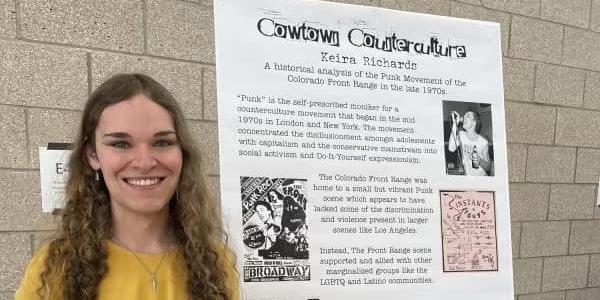
History builds a career in real world research
At CU Denver I really appreciated the diversity of courses. In my degree, I cultivated the ability to create coherent narratives out of varied data sources and know what strings to pull on in research. As a government research analyst, I utilize these skills daily. Not to mention, all of the professors were great! If you are full of questions and want the freedom to find your own answers, History at CU Denver is for you.
—Keira Richards, Non-Profit Executive Director, Grad ‘22

